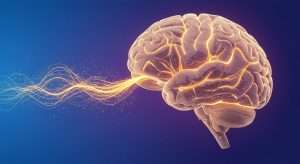A Brighter Tomorrow: New Hope on the Horizon for Alzheimer’s Disease
There’s no sugarcoating it—degenerative brain disorders are on the rise, and not just in the elderly. We’re seeing more and more young folks being affected, and it’s causing heartache for families around the world.
As someone who cares deeply about health, wellness, and keeping the mind sharp as we age, I want to share something important—and hopeful—with you today.
What Exactly Are Degenerative Brain Disorders?
These conditions slowly break down the brain’s ability to function. They don’t just affect memory—they touch everything. How a person thinks, moves, speaks, and relates to others. Over time, even everyday tasks like having a conversation or walking to the mailbox can become overwhelming challenges.
The most well-known among these disorders? Alzheimer’s disease.
Alzheimer’s is a heartbreaking illness that robs people of their memories, their independence, and often, their sense of self. It typically unfolds over 7 to 10 years, creating a fog of confusion and disconnection. Many people think it only affects the elderly, but sadly, early-onset Alzheimer’s can strike people in their 40s and 50s too.
Why This Matters Now More Than Ever
Here’s what keeps me up at night: doctors and researchers around the globe are sounding the alarm that Alzheimer’s cases could triple by 2050 if we don’t find new answers. But here’s the part that gives me goosebumps in the best way…
✨ A Spark of Hope: Could a Real Treatment Finally Be on the Way?
While there’s no official cure yet, there’s a groundbreaking discovery that has researchers, caregivers, and families feeling genuinely hopeful for the first time in years.
Recently, scientists discovered that two already-licensed drugs (currently approved for other conditions) may actually help stop brain degeneration and memory loss. These medications could restart protein production in the brain—a critical process that appears to shut down in people with Alzheimer’s.
The early results in laboratory studies were so promising that they were presented at the prestigious Alzheimer’s Society Research Conference in Manchester, where they generated tremendous excitement in the scientific community.
The researchers believe this breakthrough could lead to an effective treatment much sooner than anyone previously expected.
⚕️ Why We’re Still in the Waiting Room (And Why That’s Actually Good)
Before you start googling frantically—the names of these drugs haven’t been revealed yet. And honestly? That’s wise and responsible. The researchers want to protect people from trying unproven treatments that could be harmful.
They’re working methodically, carefully, and with integrity.
Next up are imaging tests and deeper brain studies in humans. Once they confirm the same protein signals found in laboratory studies are present in people, clinical trials will begin. This careful approach gives us the best shot at a treatment that actually works.
Learning from Past Disappointments
Earlier treatments focused on targeting “plaques” in the brain—those sticky, misshapen proteins that accumulate in Alzheimer’s patients. While those drugs successfully cleared the plaques, they didn’t slow down the disease itself. People kept getting worse.
This new discovery takes a completely different approach, focusing on restarting the brain’s own repair mechanisms.
Dr. Clare Walton, head of research at the Alzheimer’s Society, captured it perfectly: “We’ve had a lot of disappointment over the years. But this represents a genuine shift in the right direction.”
What You Can Do Right Now (Because You’re Not Powerless)
While we wait for science to catch up with hope, you can take meaningful steps today to support your brain health:
Keep moving – Regular exercise increases blood flow to the brain and may help build new neural connections
Feed your brain – Choose whole foods rich in antioxidants (blueberries, leafy greens) and omega-3 fatty acids (salmon, walnuts)
Challenge your mind – Learn new skills, solve puzzles, read books that make you think
Manage stress – Chronic stress literally shrinks brain tissue. Find what works for you—prayer, meditation, time in nature, deep breathing
Stay connected – Loneliness is as harmful to the brain as smoking. Nurture your relationships
Prioritize sleep – Your brain clears toxins while you sleep. Aim for 7-8 hours nightly
Get regular checkups – Early detection and management of conditions like diabetes and high blood pressure protect your brain
When Faith Meets Science
I believe in miracles, and I believe in medicine. Sometimes the two walk hand in hand, each strengthening the other.
The journey toward an Alzheimer’s cure has been long and filled with setbacks, but I don’t believe the story ends here. This latest research offers us a glimpse of what becomes possible when brilliant minds, compassionate hearts, and divine timing align.
A Message of Hope
Don’t give up hope, dear friend. Whether you’re caring for someone you love, worried about your own future, or simply wanting to stay sharp and vibrant for years to come—know this:
Healing doesn’t always arrive like lightning. Sometimes it comes like dawn—gradually, then all at once.
Keep your heart open and your eyes forward. The breakthrough we’ve been praying for may be closer than we think.
If this message touched you, please share it with someone who needs hope today. Together, we’re stronger than any diagnosis.
With love, faith, and unshakeable hope,
Cliff’s Mom♥
Save this post for the latest updates on Alzheimer’s research and brain health tips that actually work.




